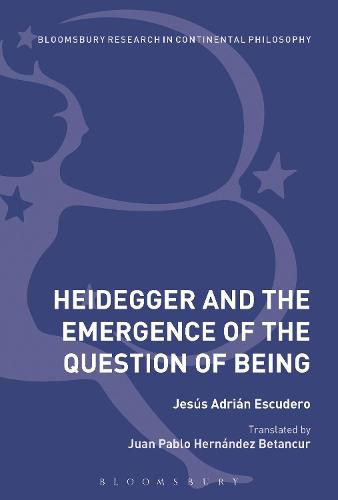Readings Newsletter
Become a Readings Member to make your shopping experience even easier.
Sign in or sign up for free!
You’re not far away from qualifying for FREE standard shipping within Australia
You’ve qualified for FREE standard shipping within Australia
The cart is loading…






Heidegger and the Emergence of the Question of Being offers a new, updated and comprehensive introduction to Heidegger’s development and his early confrontation with philosophical tradition, theology, neo-Kantianism, vitalism, hermeneutics, and phenomenology, up to the publication of Being and Time in 1927.
The main thread is the genealogy of the question of the meaning of being. Alongside the most recent scholarly research, this book takes into account the documentary richness of Heidegger’s first Freiburg (1919-1923) and Marburg (1923-1928) lectures, conferences, treatises and letters and addresses the thematic and methodological richness of this period of Heidegger’s intellectual life, and offers a coherent and unified interpretation of his earlier work.
This book conveys Heidegger’s thought in a well-organized, impartial manner, without deviating too far from Heideggerian vocabulary. It will be invaluable for upper level undergraduates, graduate students of philosophy, studying phenomenology, continental and German philosophy.
$9.00 standard shipping within Australia
FREE standard shipping within Australia for orders over $100.00
Express & International shipping calculated at checkout
Heidegger and the Emergence of the Question of Being offers a new, updated and comprehensive introduction to Heidegger’s development and his early confrontation with philosophical tradition, theology, neo-Kantianism, vitalism, hermeneutics, and phenomenology, up to the publication of Being and Time in 1927.
The main thread is the genealogy of the question of the meaning of being. Alongside the most recent scholarly research, this book takes into account the documentary richness of Heidegger’s first Freiburg (1919-1923) and Marburg (1923-1928) lectures, conferences, treatises and letters and addresses the thematic and methodological richness of this period of Heidegger’s intellectual life, and offers a coherent and unified interpretation of his earlier work.
This book conveys Heidegger’s thought in a well-organized, impartial manner, without deviating too far from Heideggerian vocabulary. It will be invaluable for upper level undergraduates, graduate students of philosophy, studying phenomenology, continental and German philosophy.